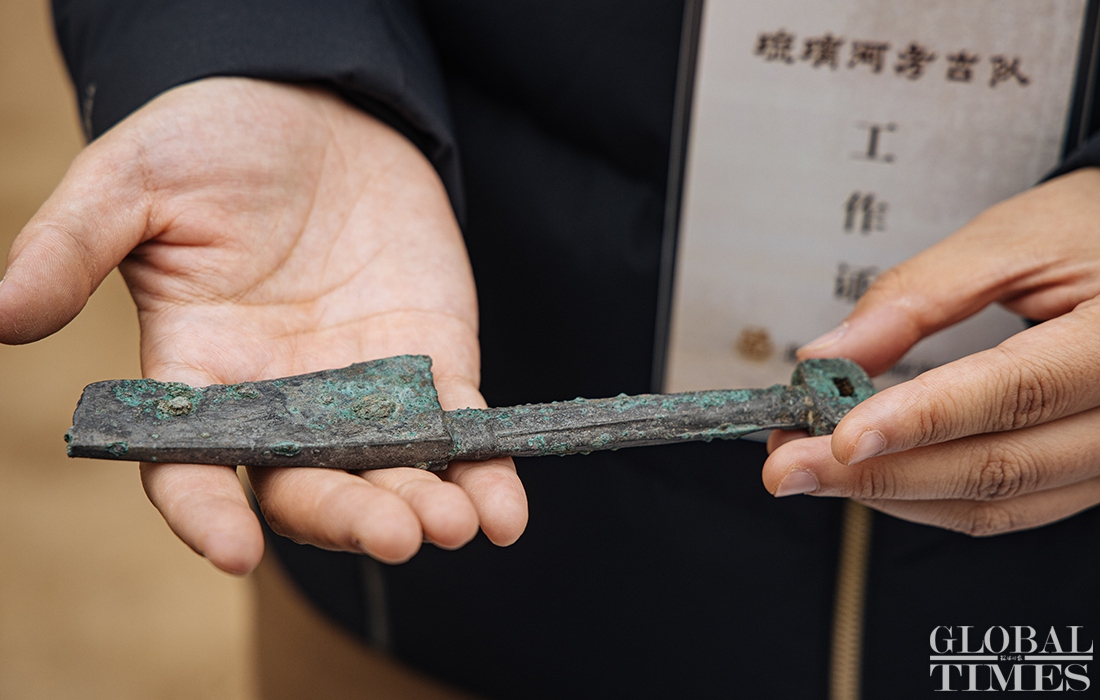IN-DEPTH / IN-DEPTH
New findings discovered in Beijing traced back to 3,000 years ago

Photo: Li Hao/GT
New archeological findings from ancient China's Western Zhou Dynasty (1,046 BC-771 BC) have been introduced to the public at the excavation site in Liulihe town, Fangshan district, southwestern Beijing.
The findings in Liulihe suggest that the region used to be the capital and original fiefdom of the Yan kingdom during the Western Zhou Dynasty.
The Liulihe heritage offers the earliest traces of Beijing known so far.
Archeologists have found earth city walls, city ruins and tombs in Liulihe. In recent years, bronze knives, arrows, jade items, stoneware, bones and pottery have also been unearthed at the site. The 20,000 pottery pieces show the features not only of Zhou culture but also the Shang Dynasty (1,600 BC-1,046 BC) and local Yan culture.
Archeologists also found various seeds, such as millet, wheat and soybeans. Millet is believed to have been the main crop in ancient times in Liulihe.
The excavation work uses cutting-edge technology. For instance, the archeologists first build a 3D measurement and control network before the excavation, and drones have also been used, Wang Jing, who is in charge of the Liulihe excavation site, told the Global Times on Thursday.
Wang noted that the new findings build on knowledge of the Yan kingdom and provide new materials to study the systems of governance in ancient China.

